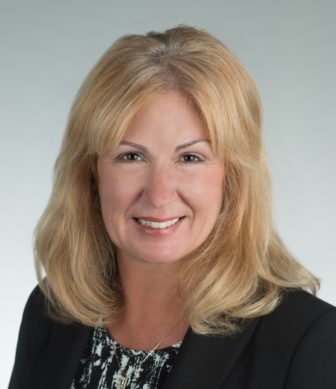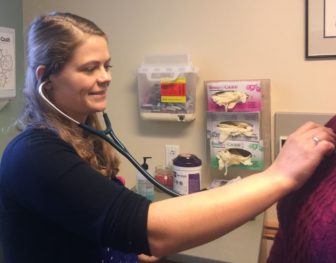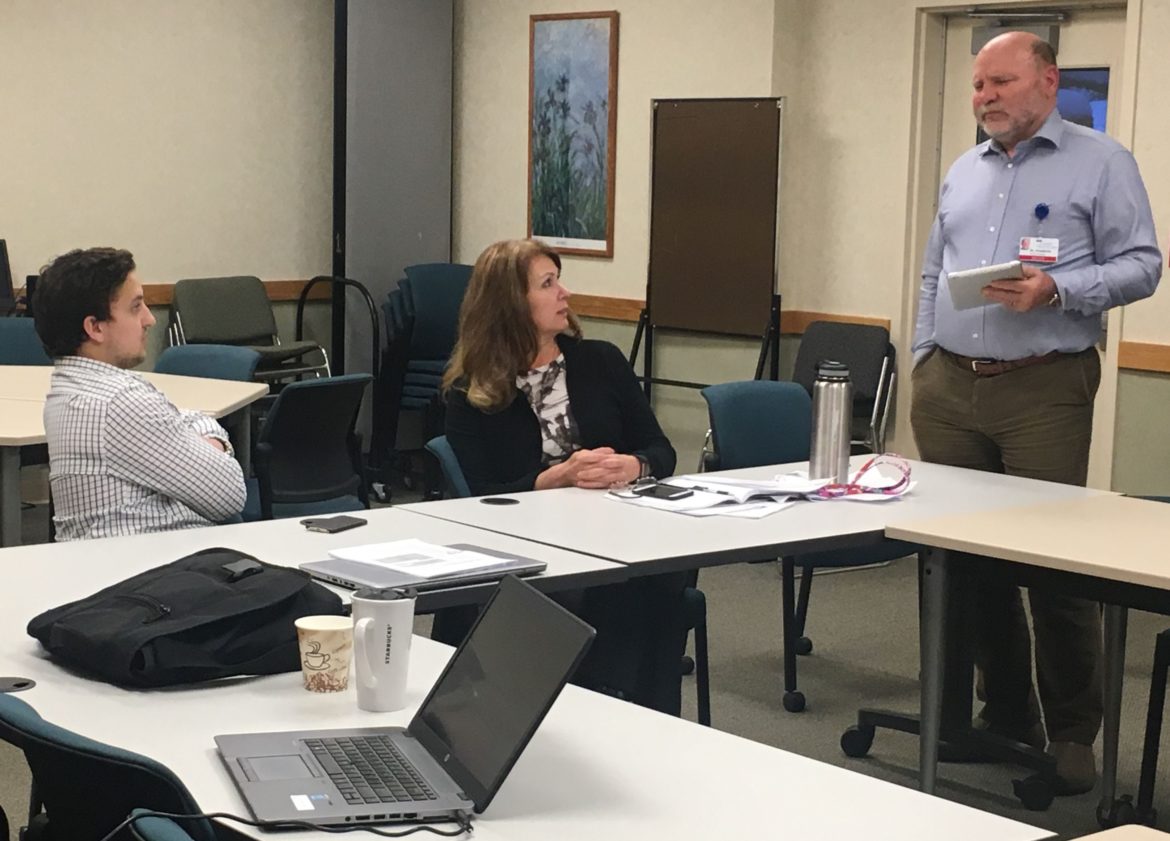Please sign up for InDepthNH.org’s free weekly newsletter and weekender by clicking here.
Michael McCord, InDepthNH.org
Determined to fill a vital need in its patient care ranks, Lamprey Health Care has launched the first Nurse Practitioner Fellowship program in the state of New Hampshire.
Lamprey has offices in Nashua, Newmarket and Raymond.
As a primary care staff shortage looms in the coming decade, what is lacking in New Hampshire and nationally are residency-type programs for nurse practitioners. They have advanced degrees beyond registered nurse qualifications and perform many of the functions of an MD but are often thrown right into care settings without a proper mentoring system.
According to the American Association of Nurse Practitioners, there are 234,000 Nurse Practitioners nationally with about 80 percent of them working full-time in primary care practices like Lamprey Health Care. The AANP estimates that nurse practitioners handled 870 million patient visits in 2014.
Lamprey, one of the state’s busiest community health centers that serves more than 15,000 patients, formally started its first year-long fellowship program for two NPs in September. It’s not alone experiencing difficulty recruiting and retaining provider staff. Greg White, the CEO of Lamprey Health Care, said the nurse practitioner fellowship programs can help health providers improve recruitment and retention while also building the confidence and competence of new nurse practitioners.
“We have always viewed ourselves as a teaching organization and over the years we’ve done it informally,” White said. “We are thrilled the program has gone off so well.”
Physicians and NPs are similar in that both diagnose, treat and manage acute and chronic diseases, order and interpret labs and diagnostic tests and prescribe medications.

Judith Casey
What is the difference between an MD and NP? Dr. Paul Friedrichs, a primary care physician for more than three decades who is overseeing the Lamprey fellowship program, said “nurse practitioners do about 80 to 90 percent of what physicians do. The main difference is that doctors are trained to study diseases and how to cure them and nurse practitioners study people and how to heal them.” He also said in his experience that nurses and NPs have exceptional people skills and are better communicators and motivators than many MDs who are more focused on bottom line issues.
Friedrichs who is near the end of his career said he has always wanted to teach more and has worked short-term for MD residency programs in Massachusetts and Maine. While there a few residency-type programs scattered across the country they remain rare. He was inspired by one in Connecticut and wanted to add more teaching and mentoring into his work mix.
Project goals
Lamprey officials say the goals of program are to increase the number of qualified and confident nurse practitioners by giving them additional experience and mentoring time while providing care to patients. “We want to have time for them to learn the tips of the trade, about the challenges of diagnoses and continuity of care,” Friedrichs said. “It’s important not to throw them to the wolves by helping them gain confidence and letting them know we have their back.”
Two fellows
The two fellows based at the Newmarket clinic bring varied experiences. Judith Casey has had extensive patient care as a nurse in a broad range of settings (cardiac, orthopedics, methadone management) before completing her MS nurse practitioner graduate degree at Walden University in Minnesota (her original nursing degree came from New Hampshire Technical Institute). Candice Ellis came to Lamprey straight after completing her nurse practitioner graduate program at Boston College after studying neuroscience at the University of New Hampshire. “They’re at the same place after different journeys but have the same goal,” Friedrichs said.
“I was originally drawn to apply to the program because I wanted to gain mentored experience in a primary care setting before entering into practice on my own,” said Ellis who focused on adult gerontology in graduate school and wants to work with vulnerable populations. “The idea of gaining additional clinical experience by shadowing specialties such as women’s health, dermatology and nutrition was especially appealing.”
“I love working with patients which is why I wanted to move into primary care,” Casey said. “I came to this differently after working in hospitals and clinics.”
Primary care agencies like Lamprey are often in Catch-22 bind. They need NPs to bolster their ranks. According to a 2016 study by the Association of American Medical Colleges, there will be a primary care physician shortage of as many as 35,600 nationally by 2025. But most money-tight organizations are reluctant to hire new NPs as there is a significant training investment needed so they can ‘ramp up’ and provide quality care along with billable hours in the fast pace of a medical practice. NPs already handle half of the total patient visits on an annual basis at Lamprey.
Friedrichs said that Lamprey was willing to seize the opportunity and make the investment because of its potential long-term impact – not only for Lamprey but to bolster the ranks of better-trained NPs throughout the state and region. The main expense is the salary of the NP fellow. “They bill like a doctor or NP but they are not seeing as many patients,” he explained. “By the end of the program the goal is get them up to three patients an hour which is roughly the norm.”
The Lamprey fellowship training is extensive and includes continuity clinics, mentored clinics, specialty clinical rotations and didactic education sessions. Clinical rotations are in areas of high-volume/high-burden/high-risk situations that NPs most commonly encounter in providing community health center/primary care areas such as: orthopedics, dermatology, women’s health, pediatrics, geriatrics, newborn/nursery, infectious disease, healthcare for the homeless, and behavioral health for children, adolescents, and adults.
Mentoring
Casey and Ellis also attend weekly educational sessions led by Friedrichs to build competencies and solve problems using case analysis and discussion.

Candice Ellis
“I think the fellowship is important because we need a well-thought and integrated process for onboarding new graduates rather than having them hitting the ground running and risking burn out,” said Mary Bidgood-Wilson, executive director of the NH Nurse Practitioner Association. Burnout in health care is no small matter. According to a 2015 report from the federal Agency Healthcare Research and Quality, burn out rates ranged from 30 percent to 50 percent for doctors, nurse practitioners and nursing assistants.
“It’s an incredible challenge to go in as a recent (NP) graduate,” said Laurie Harding, an active NP and member of the NH Commission on Primary Care Workforce Issues since 2012. She added that many NPs are under pressure to produce and take on full patient loads as soon as possible due to student debts running as high as $100,000.
“These are very serious issues. There is a lot of anxiety and ideally it requires a lot of mentoring to begin with. Many aren’t ready for workload volume,” Harding said. “We’ve wanted something like this for a long time and I think Lamprey will reap the harvest to help NPs become better-skilled and more competent.”
Ellis and Casey said their fellowship experiences have been fruitful. “NP fellowship programs are fairly uncommon,” Ellis said. “As I have never participated in any other kind of training program, I can’t accurately compare it to anything else. I can say that my experiences and the mentorship I have received at Lamprey through this fellowship program have been invaluable in setting the stage for my career.”
Casey said the new perspective has solidified her career shift to providing primary care. “The additional training has been great and beyond expectation,” Casey said. “It’s been rewarding to have repeat patients and compliment them for changes in blood pressure, diabetes or weight loss and situational depressions. When they ‘thank you,’ it means so much.”
Lamprey Health care is taking applications through March 23 for its second fellowship cohort which will start in September.






